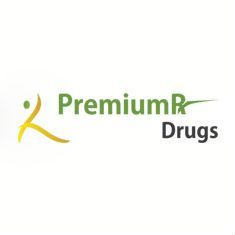Tretin Cream 0.1%
Available Dosages
| SKU | 2731 |
|---|---|
| Generic For | Tretin |
| Manufacturer | H&H Pharmaceuticals, India |
| Active Ingredient | Tretinoin |
| Pack Size | Qty | Price Per Pill or Unit | Price | Cart | |
|---|---|---|---|---|---|
| 1 Tube/s | US$ 10.00 | US$ 10.00 | |||
|
|||||
| 3 Tube/s | US$ 9.00 | US$ 27.0010%US$ 30.00 | |||
|
|||||
| 6 Tube/s | US$ 8.33 | US$ 50.0017%US$ 60.00 | |||
|
|||||
Tretin cream 0.1% is a prescription medication used to treat acne vulgaris. It is effective against whiteheads, blackheads, and minor inflammatory lesions of acne such as papules and pustules. The active component of the medicine is Tretinoin, a retinoid medication that helps keep your skin healthy by replacing your skin cells. By replacing old skin cells with new ones, Tretinoin helps open clogged pores in the skin that are blocked with dead skin cells and excess oil. This effectively treats acne and prevents more pimples from forming.
Warning with Tretin cream .1%
Use of Tretin 0.1% is contraindicated if hypersensitivity to Tretinoin or any of the ingredients is noticed.
Effects of the sun on your skin: Overexposure to natural or artificial sunlight (including tanning beds or sunlamps) can lead to sunburn. Excessive exposure to the sun over many years may contribute to premature skin ageing. The likelihood of these adverse effects occurring will vary depending on the individual's skin type, the local climate, and the care taken to avoid excessive sun exposure. Tretinoin may increase your sensitivity to sunburn and other side effects from UV rays, so unprotected exposure to natural or artificial sunlight should be minimised.
Use caution in the sun: When you step outside, even on hazy days, skin areas treated with Tretinoin should be protected. An effective, high-quality sunscreen with an SPF level that provides the necessary protection level.
Avoid excessive exposure to cold and wind: Extremes of climate can cause skin dryness or burns in individuals with normal skin. Skin treated with Tretin may be more vulnerable to these climate extremes. Your dermatologist can recommend ways to manage your acne treatment under such conditions.
Possible problems: Certain people with sensitive skin may experience excessive redness, swelling, blistered or crusted skin. If you develop severe or persistent irritation, stop treatment and consult your healthcare provider.
Use other pharmaceutical agents only on your dermatologist's advice. So, your dermatologist is the only person who knows which other medications may be beneficial for you and will recommend them to you as per your condition. Moreover, it is advisable to avoid skin formulations that cause dryness or irritation. These formulations may include certain toiletries containing alcohol, astringents, spices, or lime, as well as medicated shampoos, soaps, and other hair solutions. Also, avoid using other medications containing Tretinoin that a dermatologist has not prescribed.
Pregnancy or breastfeeding: No research studies have been conducted to establish the safety of this retinoid formulation in pregnant women.
Acne vulgaris is not caused by dirt, so no matter how hard you scrub, you can't scrub it away. Washing too frequently or scrubbing too harshly can worsen your acne. Wash your skin gently with mild soap or cleanser (two or three times should be enough). Let the facial skin dry for 15 to 20 minutes before applying the cream. Here, it is essential to note that your dermatologist does not recommend excessive rubbing, overwashing, or the use of other medications, as these activities may worsen your acne.
Side effects of Tretin cream .1%
The following side effects may improve with time as your body adjusts to this medicine. Please inform your dermatologist if you continue to experience these symptoms or if they worsen over time. Commonly reported are skin redness, sensitivity to sunlight, skin peeling or discomfort, warm feeling or stinging after applying, and worsening of acne in the first few weeks of antiacne therapy.
How to use Tretin cream .1%
Tretin 0.1% should be applied once daily, at bedtime. Apply the cream to the areas of the skin where acne lesions appear. Use a pea-sized amount to cover the entire affected area. The retinoid cream works inside your skin, and this takes time. You cannot make this formulation work any faster by applying more than a dose each day, but an excessive amount of the product may irritate your skin. Therefore, it is important to be patient with this topical treatment.
Those new to Tretinoin may experience some discomfort or peeling during the early days of the treatment. Some patients may also notice that their skin starts to take on a blush. Not all individuals experience these reactions. If they do, it is just your skin adjusting to the formulation, and this usually resolves within two to four weeks. These effects can usually be minimised by carefully following the instructions provided by your dermatologist. If the effects become excessively troublesome, seek immediate medical attention. Results should appear after two to three weeks; however, more than six weeks of treatment are required before significant improvement is observed. Once you think the topical medication has started responding satisfactorily, it may be possible to maintain the improvement with less frequent usage.
Tretinoin users may use cosmetics; however, it is essential to thoroughly wash the treated area before applying the medicine. If the topical medication is applied excessively, no better or rapid results may be noticed; instead, peeling, redness, or discomfort may occur.

What is Tretin 0.1% Cream used for?
Tretin 0.1% cream is a form of vitamin A used in the treatment of mild to moderate acne, which appears as pimples on your face, back, or chest. It not only clears skin pores but also helps to smooth rough facial skin and reduce fine wrinkles on the skin.
How does Tretin 0.1% Cream work?
Tretin 0.1% contains the active ingredient Tretinoin, which works by affecting the production of skin oils, although the exact mode of action is still not understood. By altering the skin's development and reducing oil levels, Tretinoin makes it difficult for pimples to form on the skin and body.
What does Tretin 0.1 contain?
Available as a topical formulation, Tretin 1% cream contains the active ingredient Tretinoin, a retinoid derived from vitamin A, which is a versatile medication that is effective in treating conditions ranging from acne to ageing.
How should I apply Tretin 0.1% Cream?
Apply enough topical Tretinoin for acne to cover the entire affected skin area and gently rub it into the skin well. In general, for everyone, a pea-sized amount is enough to cover the whole facial skin. You might need a moisturiser while you're using Tretinoin for acne.
How long does it take to see results with Tretin 0.1% Cream?
Generally, the results are visible within 2 to 4 weeks; however, in some cases, it may take more than four weeks before you see significant improvement in your acne with Tretin cream 1%, even if you use the topical medication regularly. Check with your dermatologist if you develop serious skin irritation or if your acne does not improve within a week.
What are the common side effects of Tretin 0.1% Cream?
Tretin cream 1% may cause itching, burning, scaling, stinging, redness of the skin or unusual dryness of the skin. Some adverse effects may occur that do not usually require medical attention. These side effects may resolve during treatment as your body adjusts to the medicine.
Can Tretin 0.1% Cream be used for all types of acne?
Tretin 1% cream, also known as Tretinoin, is often recommended for all skin types, often combined with various alternatives. This vitamin A cream for the skin effectively treats mild acne and initial signs of ageing. However, dermatologists usually recommend the mildest strength of Tretinoin, suitable for those who have some tolerance to this retinoid cream for acne or have more pronounced skin issues.
Can I use Tretin 0.1% Cream for wrinkles or anti-aging?
Among the wide range of anti-ageing products to choose from, Tretinoin, the active ingredient of Tretin cream 1%, has emerged as a golden standard for improving skin appearance. Tretinoin prescription cream got the FDA approval for cosmetic use as an effective treatment for fine lines, wrinkles, and sun damage.
Can I use Tretin 0.1% Cream if I have sensitive skin?
Your skin type is considered the primary factor when selecting between Tretinoin for acne. With a dermatologist's approval, one can switch to a tretinoin strength such as 0.05%, which is designed to be less irritating on sensitive skin.
What should I do if I experience severe irritation or side effects with Tretin?
During the initial few weeks of treatment with Tretin cream 1%, you may experience skin irritation. Also, worsening of acne may occur before it gets better. Check with your dermatologist if skin irritation becomes severe or if it takes longer than 4 to 6 weeks before you see any improvement in the appearance of acne, even with regular application.
Is Tretin 0.1% Cream effective for dark spots or hyperpigmentation?
Yes, Tretin 1% cream lightens the skin, replaces older skin cells with the new ones, and exfoliates skin, which helps you get rid of hyperpigmentation.
Is it safe to use Tretin 0.1% cream?
Yes, Tretin 0.1% cream is safe and an effective anti-acne treatment option. It not only treats acne but also reduces the appearance of surface wrinkles and dark spots that develop due to sun damage. Although this retinoid cream for acne may cause skin irritation in the initial days, you should not expect results for several months; it can help create smoother, healthier skin.











Login
Sign Up
Login
Sign Up